Audience Analysis
All infographics were made by our students and interns

A breakdown of social media conversation by platform and sentiment
We consider three key types of audiences: direct, community at large and competition. For each, we analyze a wide range of social media spaces and identify key topics of conversation, sentiment analysis, most shared content, influential users and basic demographics. We draw actionable insights for how to strategically interact with communities and key users.
- Your direct audience is composed by those who talk about you and your key brands on social media. This is your most inv
olved users, whether they support you or not.
- Your community at large is composed by users who are talking about your core issues, but do not necessarily talk about you or with you. These are the people that you want to reach out to. We’ll tell you how.
- Last, your competition’s audiences. Learning from the success and mistakes of your competition is a valuable strategy. Your base is very similar, and your competition may have tried unique strategies. We analyze their social media activity, and raw a strategy for you.
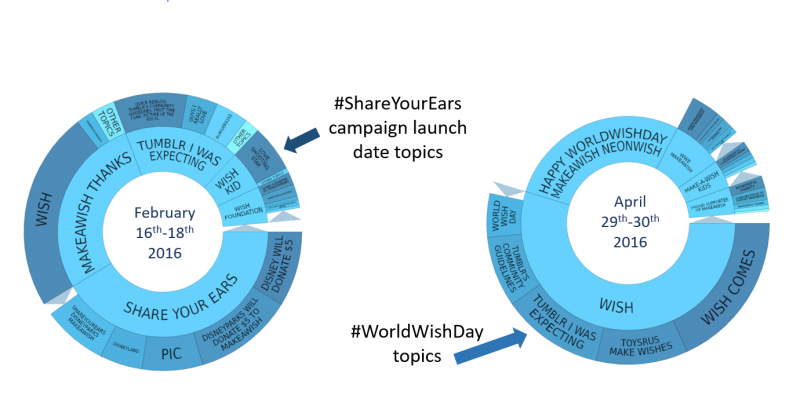
Thematic analysis of the Make A Wish foundation Twitter conversation.
Engagement Spike Analysis
Analyzing your audience’s engagement overtime, we find what makes your audience engage with your organization or brand. Your activity, your competition’s posting, and events outside the social media sphere, can all cause spikes in engagement. We identify these sources of activity overtime, looking for patterns, and suggest strategic insights. The example below captures the conversation surrounding the Make A wish Foundation.
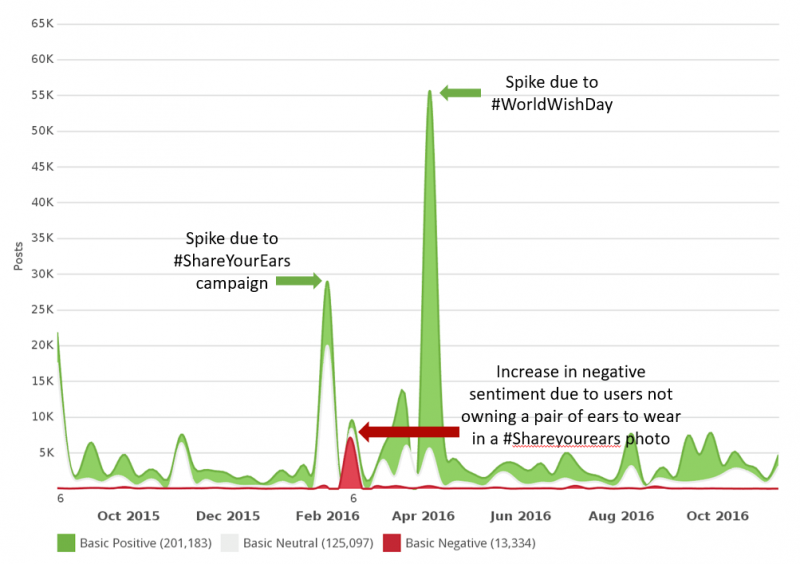
Spike analysis allows us to determine what triggers engagement and evaluate social media strategies
Sentiment Analysis
Affective response to your activity, online or offline, is critical for understanding audience attitudes, behavior and decision making. We examine sentiment in the context of the conversation. We identify the “whats”’ and the “whos”’ of the positive and negative conversations about you, your competition and the community you strive to reach out to.
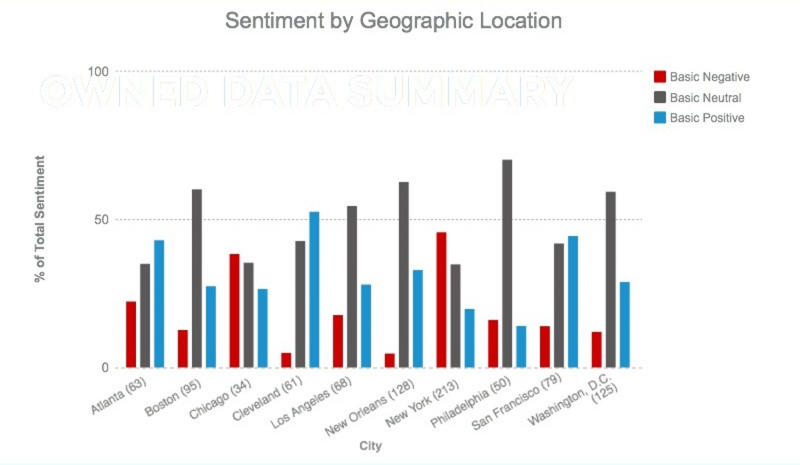
Engagement Analysis
Your posts vary in terms of theme, format and media. But what works? We will work with you to learn about your content posting practices, identify some hidden patterns, and find out what type of posts gain more engagement, and how we can improve content that is yet to attract the right level of attention.
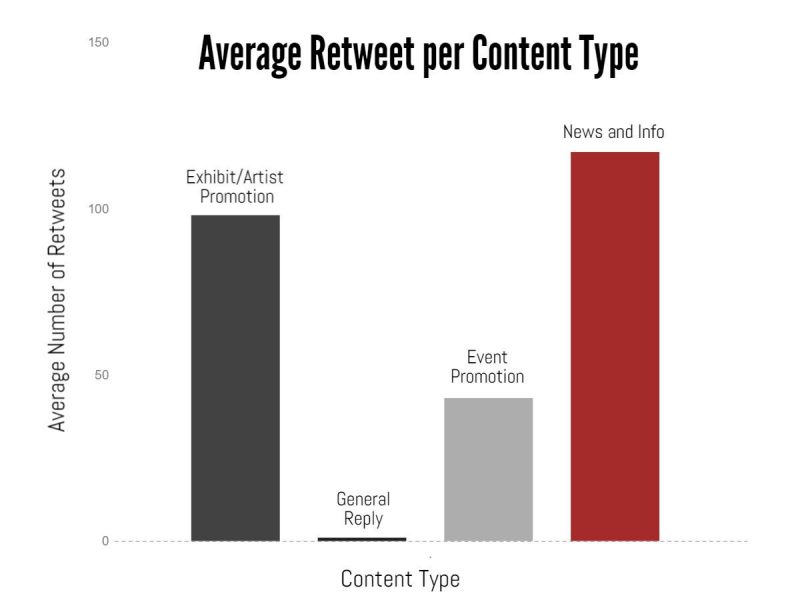
We classify posted content by categories to determine the types of messaging that work and to suggest a strategy for your organization to increase engagement and reach.
Network Analysis
Using a cutting-edge methodology, we look at patterns of engagement (such as, retweets and shares) to identify siloes of interaction and information. We detect patterns content flow, hubs, bridges and emerging communities. We develop strategy for successful interaction with users in key positions in the network. We also use social network analysis to evaluate organizational use of Twitter by its leadership and employees.
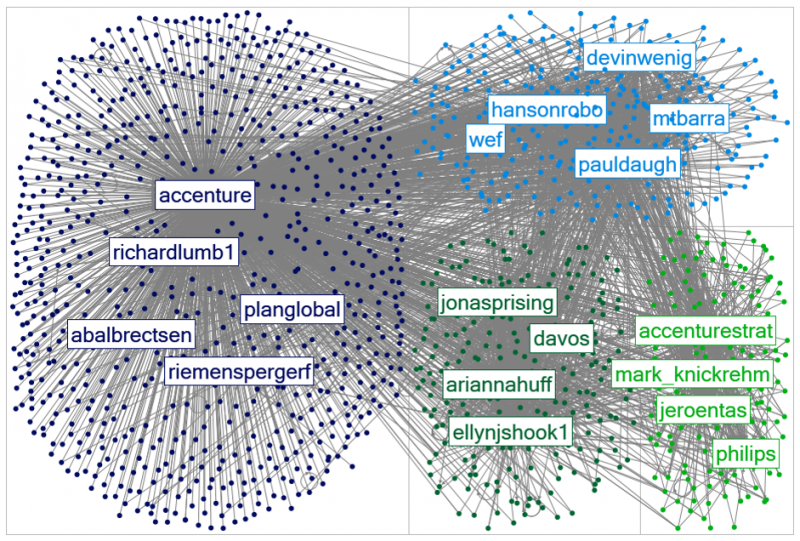
This Twitter network maps engagement patterns (the arrows in the image) that users (illustrated by the nodes) who discuss the company Accenture within the context of the World Economic Forum. The distinct clusters created and the key users in each, allow us to evaluate the extent to which Accenture reaches news audience, using their affiliated Twitter accounts.
